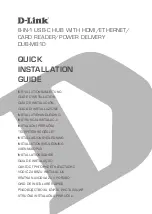
Instructional Booklet
Page
12
Effective: March 2014
O & M Manual for the RLC1
Automatic Transfer Switch
For more information visit: www.eaton.com
IB01602016E
Check to ensure there are no pipes, wires, or other mounting haz-
ards in the immediate mounting area that could create a problem.
Carefully remove all packing material from the ATS enclosure at
the installation site. Even though an equipment inspection was
performed when the equipment was received, make another care-
ful inspection of the enclosure and the ATS mechanism as the
packing material is removed and the enclosure readied for mount-
ing. Be especially alert for distorted metal, loose wires, or dam-
aged components.
4.3 Mounting Procedure
With the enclosed ATS equipment unpacked and ready for mount-
ing, proceed with the following steps.
Step 1:
Depress the padlockable catch at the bottom of the door
and slide the door downward (see Figure 11). Open the
door.
Figure 11. Location of the Door Latch.
Step 2:
Use the knockouts for cable entry and control wiring.
Step 3:
Mount the switch to a rigid structure as close to the elec-
trical loads as possible.
4.4 Power Cable Connection
Test all power cables prior to connection to the unit to ensure that
the conductors or cable insulation has not been damaged while
being pulled into position.
Power cables are to be connected to solderless, screw type lugs
located on the automatic transfer switching devices. Verify that
the lugs supplied will accommodate the power cables being used.
Also verify that the cables comply with all local electrical codes.
Standard ATS equipment, as supplied from the factory, will
accommodate the wire sizes shown in Table 2.
Table 2. Wire Sizes for ATSs.
Carefully strip the insulation from the power cables to avoid nick-
ing or ringing of the conductor strands. Prepare the stripped con-
ductor termination end by cleaning it with a wire brush. If
aluminum conductors are used, apply an appropriate joint com-
pound to the clean conductor surface area.
Note:
Tighten the cable lugs to the torque identified on the label affixed to
the unit’s door.
Step 1:
Connect cables as follows (see Figures 12 and 13, and
Table 2):
•
The utility power cables to the utility lugs; or SE breaker if
installed
•
The generator power cables to the generator lugs or generator
breaker lugs (for SE only);
•
The customer load cables to the main distribution panel (load)
lugs;
•
The neutral cables to the neutral bar; and
•
The ground wires to the ground bar.
CAUTION
EXTREME CARE SHOULD BE TAKEN TO PROTECT THE ATS FROM
DRILL CHIPS, FILINGS, AND OTHER CONTAMINANTS WHEN MAK-
ING THE CABLE ENTRY HOLES AND MOUNTING THE ENCLOSURE
TO PREVENT COMPONENT DAMAGE OR A FUTURE MALFUNCTION.
NOTICE
THE INSTALLATION MUST FULLY COMPLY WITH ALL APPLICABLE
CODES, STANDARDS, AND REGULATIONS.
NOTICE
FOR CONTROL WIRING (GENERATOR ENGINE START WIRING), THE
WIRES MUST BE ISOLATED FROM BOTH THE UTILITY AND GENERA-
TOR POWER SOURCE CABLES.
WARNING
POWER CONDUCTORS MAY HAVE VOLTAGE PRESENT THAT CAN
CAUSE SEVERE PERSONAL INJURY OR DEATH. DE-ENERGIZE ALL
POWER OR CONTROL CIRCUIT CONDUCTORS TO BE CONNECTED
TO THE ATS EQUIPMENT BEFORE BEGINNING TO WORK WITH THE
CONDUCTORS AND/OR TERMINATING THEM TO THE EQUIPMENT
CAUTION
TO HELP PREVENT COMPONENT DAMAGE OR FUTURE MALFUNC-
TIONS, USE EXTREME CARE TO KEEP CONTAMINANTS OUT OF
THE ATS EQUIPMENT WHEN MAKING THE POWER CABLE CONNEC-
TIONS.
TRANSFER SWITCH
AMP RATING
CONTACTOR WIRE
SIZE RANGE
NUMBER OF CABLES
PER PHASE
100
#14 – 2/0
1
200
#4 – 300 KCMIL
1
CAUTION
IMPROPER POWER CABLE CONNECTIONS CAN CAUSE EXCESSIVE
HEAT AND SUBSEQUENT EQUIPMENT FAILURE.










































